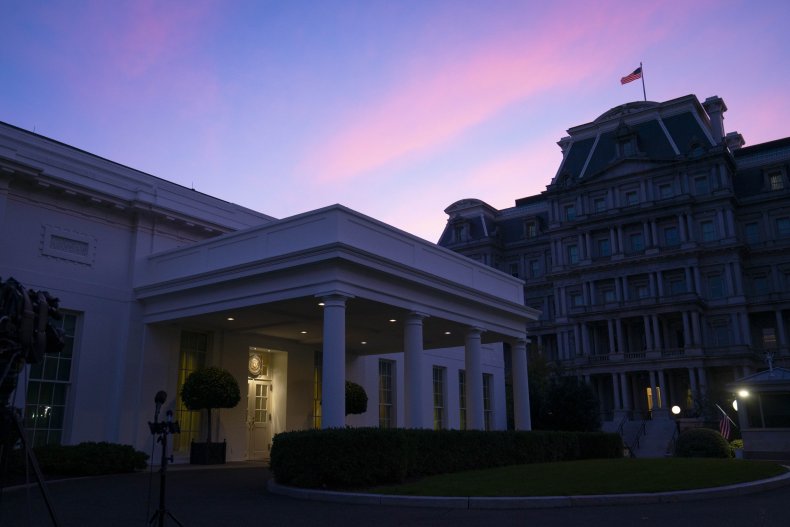The U.S. Is Conflicted on Autocracy | Opinion
Democracies battling with autocracies has been a central theme of President Joe Biden's foreign policy from the moment he took the oath of office and preached its virtues to the American public. It comes as no surprise that the White House, in coordination with dozens of other nations around the world, organized a three-day event full of speeches and working groups to promote and strengthen democratic governance globally.
Dubbed the Summit for Democracy, which first took place in December 2021, the event boasts a jam-packed itinerary. Former political prisoners, civil society leaders and opposition figures will participate. Belarusian opposition leader Sviatlana Tsikhanouskaya, who was driven out of her country after losing a fraudulent presidential election to long-time autocrat Aleksander Lukashenko, will make an appearance. Ukrainian President Volodymyr Zelensky will be speaking, during which he will make yet another plea for heavier weapons to fend off Russia's invasion and occupation. Different countries will have different responsibilities as well; the Netherlands will preside over a session about press freedom, while South Korea will lead a meeting about tackling corruption.
All of this is well and good as far as organized government-to-government initiatives are concerned. But one must ask whether anything substantial will come out of the summit other than the typical joint statement and pledges of monetary support (Biden already promised $690 million for democracy programs). Perhaps the better question is whether the administration is doing itself a disservice by focusing so intensely on political ideology as a fault-line in international relations to the point where it runs the risk of dumbing down geopolitics as some kind of medieval crusade between the so-called free world and tyrannical oppressors.
These queries may come across as uncomfortable and a bit awkward. The U.S. makes no apologies for being the world's most vibrant democracy—nor should it. Americans feel a sense of pride when they drop their vote in the ballot box during election season. We hold ourselves to a high standard, yearn for all people to enjoy the same freedoms we do and scowl at foreign leaders who subjugate their citizens through fear, surveillance, and intimidation. We don't take kindly to ruling elites who treat their countries as if it were their own personal playgrounds.
Our feelings are one thing. Reality is another. And the reality is that, whether we like it or not, the world is full of states where various autocracies are firmly implanted. Some of them, like Syria's Assad regime or the ruling clique headed by Equatorial Guinea's Teodoro Obiang, are tin-pot dictatorships ruling largely inconsequential states in the international system. Others, like the People's Republic of China, are de-facto superpowers with decades of economic growth, formidable militaries, and an inherent desire to expand their power and influence. Still others, like Russia under Vladimir Putin, hold a permanent seat at the U.N. Security Council, sit atop significant natural resources (before the war in Ukraine, Russia produced 11 percent of the world's oil) and possess nearly 6,000 nuclear warheads. Some can be ignored or ostracized, with little consequence to U.S. security interests (who cares if Cambodia, for example, is sanctioned or slapped with a U.S. arms embargo?). Others, like Turkey and the Gulf monarchies, can't be ignored for a number of reasons—the Turks can muck up procedure within NATO, as they continue to do with Sweden's membership bid, and the Saudis can exploit their status as the world's swing oil producer to increase energy prices whenever it suits them.

In other words, non-democratic states are like bad weather. Autocracies, be they family-based dictatorships, one-party states, or military-dominated governments, are part of the picture. You can't eliminate autocracies any more than you can eliminate rainy days.
This is obvious. Yet sometimes one gets the feeling U.S. officials are a bit conflicted, perhaps even confused, about their own policy. On the one hand, President Biden and his senior foreign policy advisers take every opportunity to trumpet the benefits of democracy over other forms of government and warn people everywhere that autocrats are teaming up to undermine the ideals we all wish were universal. But on the other, the U.S. maintains solid diplomatic, economic and military relationships with some of the globe's most well-known autocrats: people including Saudi Crown Prince Mohammed bin Salman, Egyptian President Abdel Fattah el-Sisi, United Arab Emirates President Sheikh Mohamed Bin Zayed, Turkish President Recep Tayyip Erdogan and Uganda's Yoweri Museveni.
The U.S. retains these relationships not because it approves of the way those leaders govern internally (Sisi, for instance, has jailed tens of thousands of political protesters over the last decade, while Crown Prince Mohammed has gone after high-profile dissidents overseas), but because it serves some sort of U.S. security interest. The U.S. State Department considers Uganda under Museveni "a reliable partner for the United states in promoting stability in the Horn and East/Central Africa" and for combatting terrorism in Somalia. Mexico's democratic institutions are under attack by a highly bombastic, nationalistic president in Andrés Manuel López Obrador, yet Washington is highly dependent on this same man for ensuring the U.S.-Mexico border is overrun by illegal migration.
The U.S. doesn't dislike autocracy across the board—it just dislikes autocrats who have drastically different objectives than our own or deliberately seek to undermine U.S. power. Remember this the next time a senior U.S. official delivers a speech on the subject.
Daniel R. DePetris is a fellow at Defense Priorities and a syndicated foreign affairs columnist at the Chicago Tribune.
The views expressed in this article are the writer's own.

